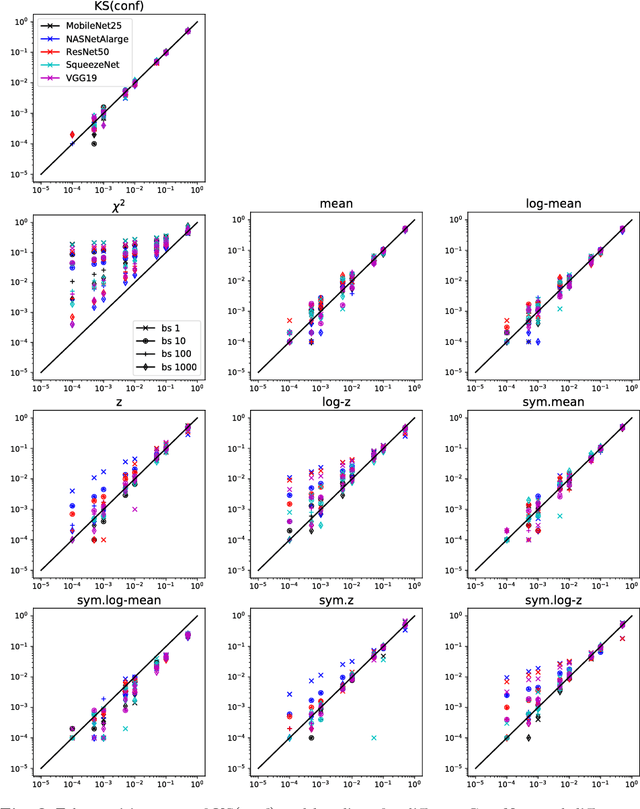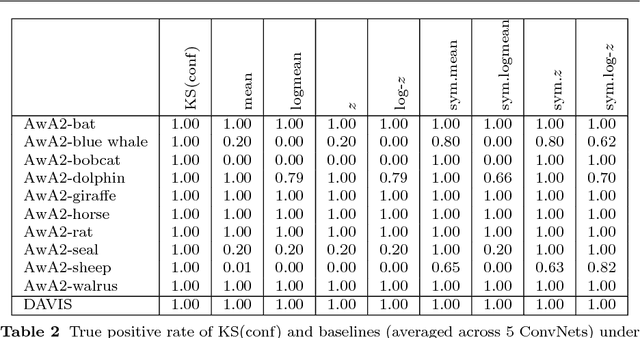KS: A Light-Weight Test if a ConvNet Operates Outside of Its Specifications
Paper and Code
Apr 11, 2018



Computer vision systems for automatic image categorization have become accurate and reliable enough that they can run continuously for days or even years as components of real-world commercial applications. A major open problem in this context, however, is quality control. Good classification performance can only be expected if systems run under the specific conditions, in particular data distributions, that they were trained for. Surprisingly, none of the currently used deep network architectures has a built-in functionality that could detect if a network operates on data from a distribution that it was not trained for and potentially trigger a warning to the human users. In this work, we describe KS(conf), a procedure for detecting such outside of the specifications operation. Building on statistical insights, its main step is the applications of a classical Kolmogorov-Smirnov test to the distribution of predicted confidence values. We show by extensive experiments using ImageNet, AwA2 and DAVIS data on a variety of ConvNets architectures that KS(conf) reliably detects out-of-specs situations. It furthermore has a number of properties that make it an excellent candidate for practical deployment: it is easy to implement, adds almost no overhead to the system, works with all networks, including pretrained ones, and requires no a priori knowledge about how the data distribution could change.
 Add to Chrome
Add to Chrome Add to Firefox
Add to Firefox Add to Edge
Add to Edge